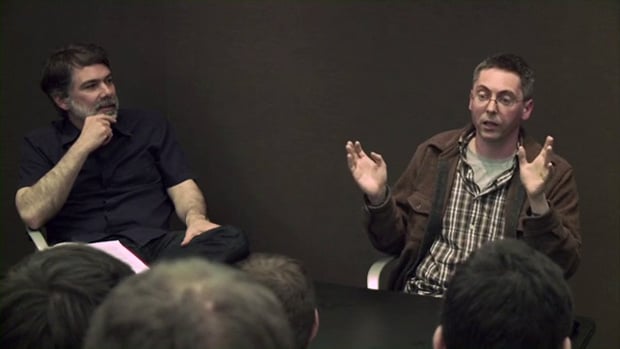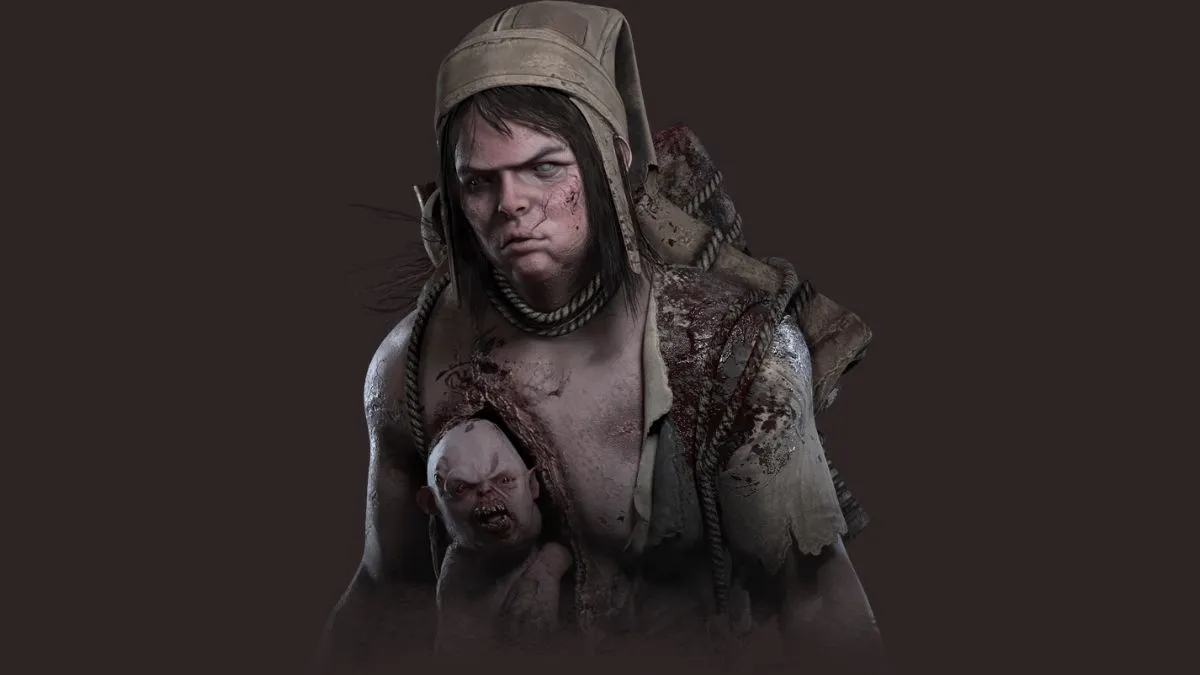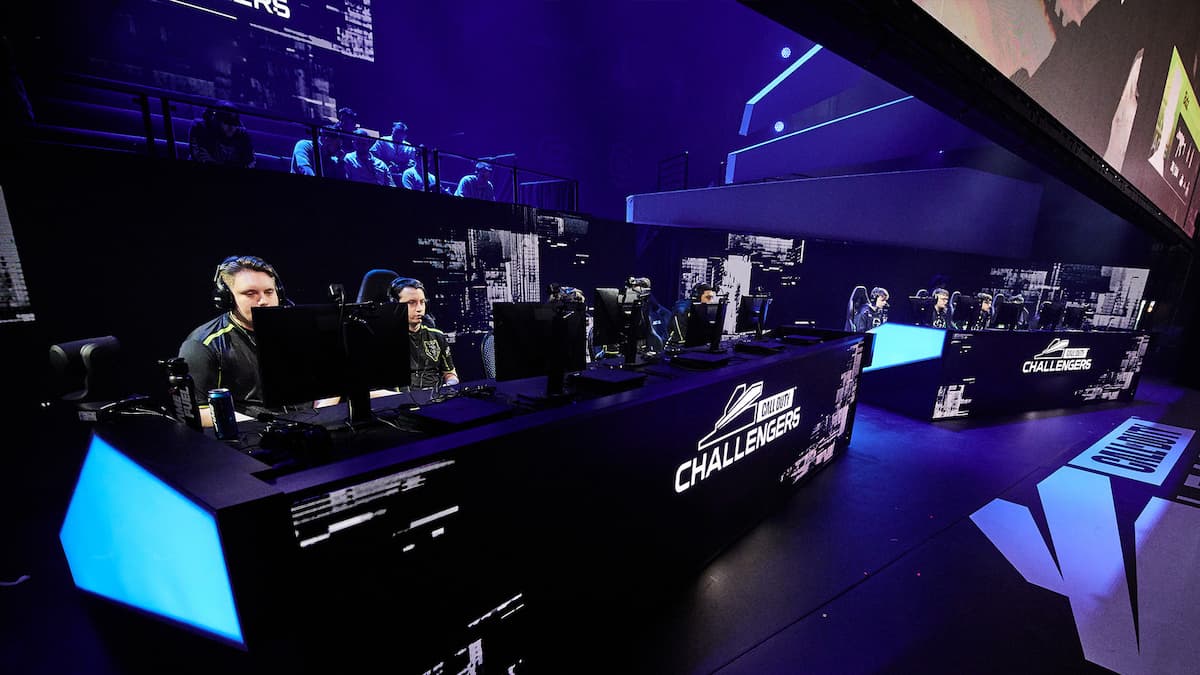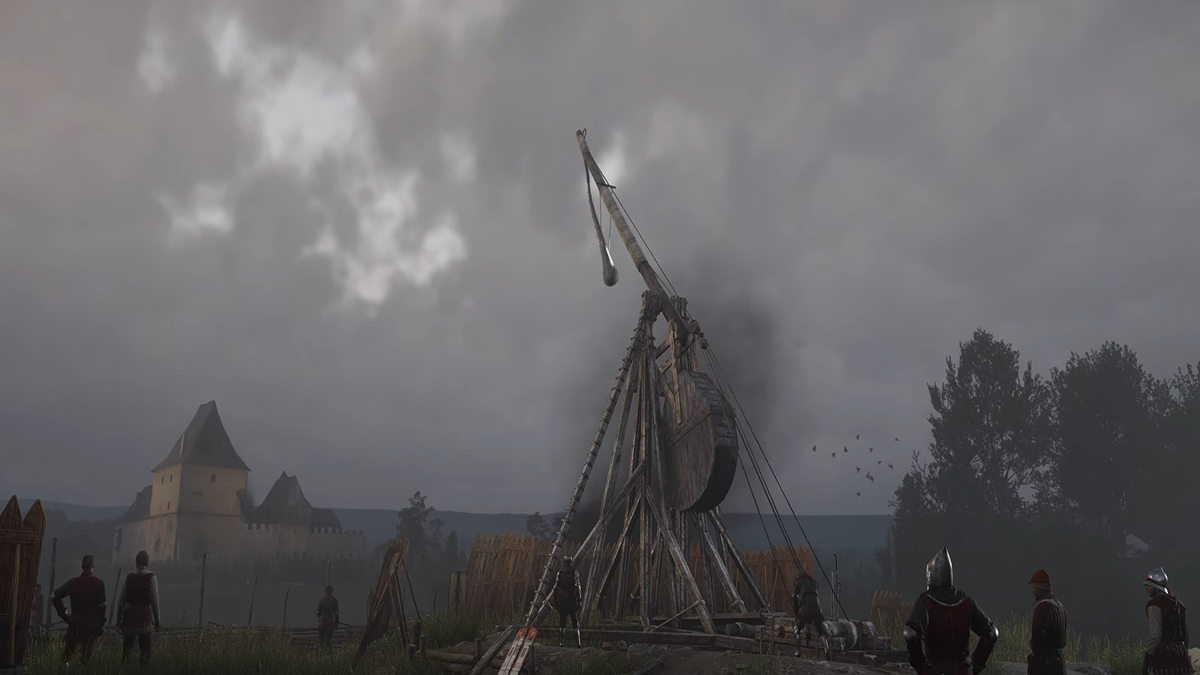“I love these things, but I also know that there’s something weird, and kind of bizarre, and strange about them — like, there’s something really dumb about them. […] We love them, and, kind of, hate them at the same time.”
That was the way that Frank Lantz, Interim Director of the Game Center at New York University, characterized the attitude toward videogames displayed on Old Man Murray, the videogame criticism website that Valve Software writers Erik Wolpaw and Chet Faliszek once ran. The setting was a cozy theater in the basement of NYU’s Tisch School of the Arts, where, last Thursday evening, Wolpaw mused for nearly ninety minutes on a wide-ranging variety of topics — including the design of Portal and Portal 2, the development process at Valve, and the nature of story in videogames — without getting pretentious.
Well, maybe just once.
I encourage you to check out the full lecture, which can be viewed in its entirety here. But if you can’t spare the time, I’ve broken out the salient points for you below. (I mean, the recap is still pretty long, but even then, it probably won’t take you an hour and a half to read.)
[Editor’s note: Regrettably, I have yet to play Portal 2 myself. However, that’s good news for you if you’re in the same boat, since it means that this article is spoiler-free! -Samit]

Symbolic suspended animation: Wolpaw began by playing through the opening of Portal 2. The game begins in what appears to be a small hotel room; after a brief interaction with a (non-GLaDOS) computerized voice, you go back to sleep — or rather, re-enter suspended animation. Valve originally thought of providing a gameplay sequence representing the state itself: “Aperture makes this [relaxation chamber] that’s supposed to store you forever, but it’s actually this, just, real-time simulation of you pacing back and forth in a shitty hotel room. It was just going to be the worst thing ever.” The segment didn’t work out, so the developers merely stuck Chell in a container that was literally a hotel room.
Bringing on Stephen Merchant to play Wheatley, the Personality Sphere: Wolpaw and his co-writer, Jay Pinkerton, had been watching a lot of British comedy shows when they began working on the Portal 2 script. The list of shows included Extras, which was co-created by Ricky Gervais and Stephen Merchant. But Merchant actually wasn’t Valve’s first choice for Wheatley; the writers initially went after Richard Ayoade, perhaps best known for his role in The IT Crowd, because of his “nasally” and “annoying” voice. “This was when we were kind of imagining Wheatley as being a little more hectoring,” explained Wolpaw.
But Ayoade’s involvement fell through due to scheduling conflicts, and at that point, “We kinda started writing in Stephen Merchant’s voice,” without any real hope that he would be interested in coming on, since Wolpaw “just assumed he was rich” from co-creating the original British version of The Office. To Wolpaw’s delight, Merchant said yes: “I’m really, really happy with the way this turned out in the sense that it’s a very natural-sounding performance.” Wolpaw cited, among other qualities, Merchant’s “awesome ability to, kind of, make things that are written down sound like they’re just, sort of, off-the-cuff.”

The Portal sequel that might have been: For the first six months of its development, Portal 2 didn’t even have portals in it. Valve had devised a different puzzle mechanic, dubbed “F-Stop,” that was “pretty promising.” (Wolpaw wouldn’t go into any detail on F-Stop, since the studio may use it in a future game.) Not only was the game’s core mechanic different, but it had a separate story altogether. The F-Stop version of Portal 2 “took place in the ’50s — GLaDOS wasn’t in it, Chell wasn’t in it. It was [Aperture Science founder] Cave Johnson, and it was the story of him getting put into a computer and then realizing he’s made a huge mistake.”
As it turned out, the game’s playtesters kept asking about GLaDOS and the portal gun. “People may have enjoyed the puzzles to varying degrees, but [essentially] to a person, they didn’t want a clean slate,” said Wolpaw. So the team decided to bring Chell and portals back, but set the sequel in the future.
Just how do you go about making a sequel to Portal, anyway?: The original Portal was “pretty much one long training arc getting you to understand how portals worked,” and every bit of the game was designed with that goal in mind. But Valve refused to discard the training aspect of the game for its sequel, since, “If you made a list of things going in — constraints — [one] is that we didn’t want to just sell this, or design it, for people who had played Portal 1.” That might be why some folks are feeling that Portal 2 is easier than Portal, but Wolpaw also pointed out that with perfect hindsight, the team was able to refine elements of the original game and improve the overall puzzle design.

If Aperture Science is decrepit, why are the elevators in better shape?: There was “no story reason” for the “cooler-looking” elevators in Portal 2 — they’re just a product of a bigger team, said Wolpaw.
Science-fiction influences: When pressed about the science-fiction works that influence his writing, Wolpaw said that his father had been a “huge science-fiction fan” — his home contained bookshelves filled with issues of Fantasy & Science Fiction and Galaxy Science Fiction. He admitted that he didn’t do as much reading of them as he did browsing — “I looked at the covers a lot,” he told us — but mentioned Ray Bradbury, Fredric Brown, and Robert Sheckley (who has a Half-Life 2: Episode Two character named after him) as authors whose writing he enjoyed.
Who looks at those testchamber signs?: One of the keys to Valve’s iterative design process is the extensive playtesting that the company undertakes for each of its games. It reveals a lot about player tendencies, and Wolpaw shared an interesting tidbit with us regarding the signs at the start of each testchamber. Valve brings in gamers as well as non-gamers for playtesting, and noticed that people who are well-versed in the language of videogames “tend to just dive in,” breezing right by the signs, because they “have this intuitive sense that the designer is going to make it so that you don’t have to read that sign […] as anything but flavor text.”
On the other hand, “People who don’t play games, almost to a person, would come and look at every sign to try and extract [information] — like you would in real life. You expect that ‘there’s going to be information I need on this sign.’” The diagrams and symbols don’t necessarily help me to figure out the puzzles, but I glance at them anyway, just because they’re fun to look at. That’s just me, though.

The “Valve Cabal”: The folks at Valve succeed in spite of, or perhaps because of, their unorthodox studio organization. Rather, there isn’t a typical organizational arrangement at all. “It’s this weird, sort of, flat management structure; kinda communal; there’s no real hierarchy,” Wolpaw began. When asked to discuss it, he spoke haltingly, saying he was stammering because “I’ve tried to explain to my wife how it works, and I haven’t been able to, and she doesn’t believe that it should work.”
He finally found some words, saying that “everybody, kind of, pitches in, and order sort of emerges from that chaos.” Here, he reiterated the importance of playtesting, explaining that the process is tremendously humbling. “It’s hard to keep defending some idea when you see it fail repeatedly,” he said, noting that “it’s sort of liberating” because “people just get very used to not feeling like, ‘I’ve got to cling to this idea because this idea is my idea and I’m worthless if this doesn’t go.’ Most of the ideas don’t pan out.” Of course, if you can force yourself to discard everything but the very best, and you have extremely high standards for yourself, you’re probably going to do pretty well.
Another tough test for the team is a body at the studio called “Overwatch.” It’s not an Orwellian overseer, per se; Wolpaw explained it as “people who aren’t working on the product, but who are, sort of, trusted people in terms of just their product focus — like, what does a Valve game look like?” The Overwatch folks play the game and provide “brutally honest” feedback. They only mention issues, not solutions, and there’s no skating by them. Often, Overwatch will point out something that you “kind of had in the back of your head, that you think this might be a problem, but, ‘Maybe we’ll sneak it by Overwatch,’ and then it doesn’t really work that way.”

Cutscenes are a cop-out, in most cases: Valve is renowned for making games that rarely, if ever, take you out of the first-person perspective. “We have this feeling, I think, internally — I don’t know that we say it that much — that doing the cutscenes is kinda like admitting defeat,” said Wolpaw. He quickly acknowledged that he plays and enjoys “a million games” that have cutscenes, such as Red Dead Redemption, Saints Row (“great”), and God Hand (“best game ever”). Portal 2 itself ends with a cutscene, but only because “it wasn’t going to look as good if we did it live, and it was going to require a level load.” Sometimes, said Wolpaw, it’s okay to sacrifice the narrative in the interest of “[making] it look really good.”
“So here’s something pretentious” about adventure games: Wolpaw isn’t a big fan of traditional adventure games. After playing many of them in his youth, he realized that he “liked the writing — they tend to be funny — but the puzzles were never very good, and there was a huge disconnect, just mechanically [between the gameplay and writing].” (He then joked that he “liked to tell Tim [Schafer] that all the time” during his tenure at Schafer’s studio, Double Fine, “with all the crappy games he made.”)
But Wolpaw’s sole pretentious comment, in his view, came when he characterized Portal as something that “seems like […] kind of an adventure game: you’re not shooting people in the face; it requires thinking, but the puzzles are very logical; and it’s got a storyline through it.” In fact, Valve was surprised that more developers didn’t try to ape Portal after it became a runaway critical and commercial hit in 2007. “We thought, ‘This is it — floodgates are open. Man, when Portal 2 comes out, we’re going to be competing against 17,000 other games that are like it.’ And then nothing really happened.” Even in the context of the recent renaissance of old-school adventure games, Wolpaw suggested that “maybe something along these lines” is the way to go for adventure-game developers who want to grow their audience.

Choose Your Own Adventure books — in a game: Wolpaw may not enjoy adventure games, but he does think that Choose Your Own Adventure books are “cool.” After mentioning the “like, five thousand books in [The Elder Scrolls IV] Oblivion,” he bestowed his “big idea” upon us: “What if they were Choose Your Own Adventure books? Like, you’d open it, and it was a Choose Your Own Adventure book? And it’d be fun — it’d be, like, a fun 15-minute break from adventuring.” That might just get me to play an Elder Scrolls game.
Which came first, the puzzle or the space?: The world of Portal is purposefully abstract, Wolpaw explained, since Valve’s designers come up with a batch of puzzles that are then inserted into the game. “You can design the space almost exactly like you want for the puzzle; [the space] doesn’t have to represent anything real. So […] usually the puzzle will come first, and you can conform the space to it.”
On Chell, and silent protagonists in general: “I don’t know that it’s specifically a Valve thing, but it’s a thing,” said Wolpaw of silent protagonists in videogames. Chell remains silent for a number of reasons. “I mean, for all you know, Chell […] might actually have brain damage,” Wolpaw began, as the audience broke out into laughter. Indeed, comedy was a major impetus for having a silent protagonist in Portal. After explaining the two major types of comedy — the straight man in a crazy world, and the crazy man in a straight world — Wolpaw described Portal as the quintessential “world gone mad with the straight man, and the straight man is you.”

In addition, it just saves time if Chell doesn’t speak, and it also serves the comedic timing better, according to Wolpaw. “I think you may want to know her backstory; you may want to hear her say things; but I guarantee, if she had to say her straight-man lines at the expense of half of the other dialogue, it would suck. And Jay and I would be miserable, and everybody’d be miserable.” Finally, Wolpaw doesn’t believe that people are particularly invested in Chell’s character, because she doesn’t have much of a personality. Instead, “We always assume she could talk and she simply just chooses not to, because the robots are all being dicks, and why give them the satisfaction of saying anything to them?”
For GLaDOS, how cruel is too cruel?: GLaDOS spends a lot of time cracking wise at Chell’s expense, and Wolpaw explained that because Chell is essentially a cipher for the player, the jokes only work if they’re “relatively absurd.” That’s why she taunts Chell about being adopted — “I mean, nobody really thinks that adopted people are lesser than anybody else” — and about her weight, “because clearly, Chell is not fat; I think [GLaDOS] even admits that at some point, later in the game.” An audience member suggested that GLaDOS belittles Chell like an overbearing mother would criticize her child, and that’s something that Wolpaw has experience with. “I was a fat kid my whole life,” said the now-svelte writer, “and I had this kind of passive-aggressive grandmother who was always needling me about it.”
Originally, Portal 2’s script called for an even harsher GLaDOS. According to the feedback from playtesters, she “was just too vicious and mean, and people were kind of getting ground down by just how awful she was being to you.” Even Ellen McLain, the computer’s voice, expressed reservations in the voice-over studio about some of the content. “I don’t know what we were thinking,” said Wolpaw.

A missed opportunity: Someone asked if Valve had cut anything particularly good from Portal 2, and after racking his brain, Wolpaw recalled that they had come up with a “Morgan Freeman, kind of, sphere,” but ended up not using it. No, seriously. “Like, you find him in this little ten-by-ten room, and he’s, like, the wisest guy about this ten-by-ten space. Doesn’t know anything about anything [else] — is just blown away by the shit that’s five feet outside the ten-by-ten space — but has a lot of advice that all, kind of, relates to things that were in the ten-by-ten space.” I wish I’d thought to ask if they had actually gotten Freeman to lend his voice to the sphere.
Did Portal really need a story?: You’d think that the brilliantly designed puzzles alone would be enough to keep people enthralled, but Valve’s rigorous playtesting revealed otherwise. At some point, the players became “fatigued” during the original Portal — “they were enjoying it, but even at the length it was, a quarter of the way through, they were like, ‘There’s nothing pulling me through this. It’s kind of fun, but it’s sterile and it’s sort of dry, and I’m just sort of done.’” So the story — as sparse as it was — was key in keeping players engaged. “Just having the voice [of GLaDOS], kind of, just saying something mildly amusing at the end and beginning of the levels was enough,” said Wolpaw.
——–
Again, if you’re interested in hearing more about this stuff, a video of the full session is available online.




